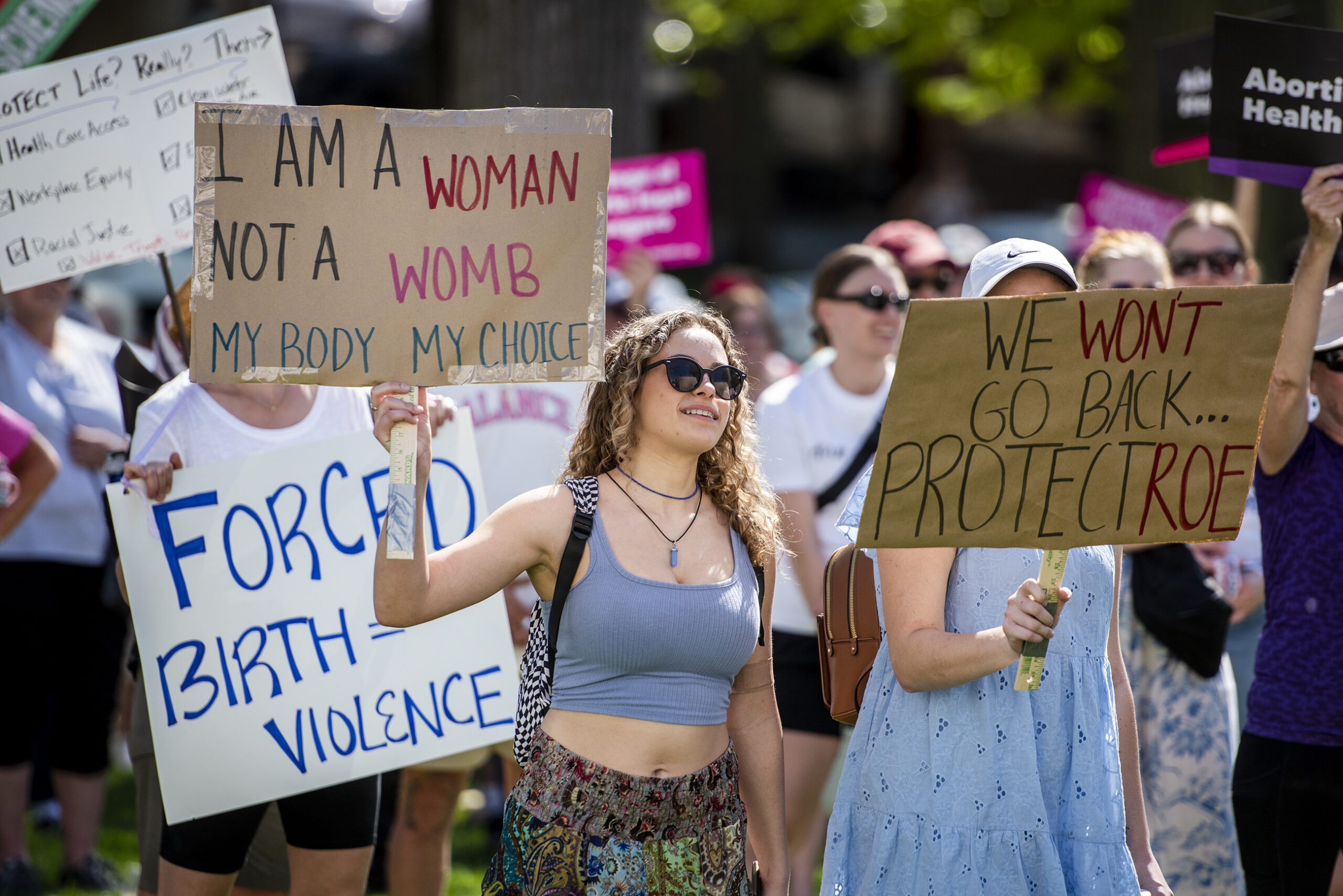Wisconsin’s Supreme Court heard arguments Thursday on behalf of a man barred from being near a nurse practitioner for Planned Parenthood, after a lower court found he harassed and intimidated her.
The Trempealeau County Circuit Court granted an injunction against Brian Aish in 2020, over actions he took while protesting at the Blair Health Clinic in western Wisconsin. An appeals court later upheld that injunction.
Now, Aish’s attorneys are asking the state’s highest court to vacate the injunction, arguing that Aish’s comments didn’t amount to harassment under state law, and that the order violates his 1st Amendment rights to protest Planned Parenthood and abortion.
Stay informed on the latest news
Sign up for WPR’s email newsletter.
But, Diane Welsh, an attorney arguing for the injunction to be upheld, said Aish singled out the nurse practitioner with threats and menacing conduct.
“This case is about behavior,” Welsh told the Supreme Court justices Thursday. “It is not about beliefs. This was a run-of-the-mill harassment injunction.”
The nurse practitioner had known Aish since 2014 because he was a frequent protester at Planned Parenthood Clinics where she worked across the state.
She started worked at the Blair Health Clinic in 2019, when the facility began offering services through Planned Parenthood one day a week. The Blair Health Clinic did not provide abortions, but the nurse practitioner assisted the center with providing other types of reproductive health care.
And beginning in fall 2019, Aish’s conduct toward the nurse practitioner became more confrontational, according to testimony during a two-day injunction hearing from the woman and her co-workers.
The nurse said Aish frightened her during multiple incidents in 2019 and 2020. That included standing several feet away from her car and telling her she could be killed by a drink driver on the way home, and that it would not be too long before bad things happened to her or her family, according to court documents. After she ignored him on another date, he “ran out into the road after [her] pumping his anti-abortion sign into [her] car window within inches of it.”
He once told her she had “blood on her hands,” and later called her a liar while accusing her of reporting him to the authorities, court records say.
Aish’s behavior toward the nurse was so concerning that the clinic added a security guard and cameras, her attorneys wrote.
In a brief asking the Supreme Court to reverse the Appeals’ Court decision, Aish’s attorney Joan Mannix, argued that Aish hadn’t intended to threaten the woman, but rather that he was warning her more generally about commonplace dangers.
“When he said that bad things happen, like drunk driving accidents, he said this because he is aware that 7,000 people a day die in the United States, and he wanted her to turn away from sin and put her faith in Jesus Christ before it is too late,” the brief said.
The four-year injunction bars Aish until Sept. 9, 2024 from being near the nurse at her home, or any other place that she occupies temporarily. Since that would include the clinic while she is working there, Mannix called the order “overbroad.”
“He can’t know when she will or won’t be there,” Mannix, who’s representing Aish on behalf of the conservative Thomas More Society, told the Supreme Court Thursday. “So he’s essentially barred from any form of protest at the Blair Clinic.”
Earlier this year, a Wisconsin Appeals Court found the order to be appropriately tailored and rejected Aish’s argument that his conduct was protected as a 1st Amendment right to protest abortion.
“To be clear, Aish was not protesting at an abortion clinic,” a Jan. 25 opinion said. “His efforts were not geared toward changing the minds of the general public or legislators. Rather, Aish was attempting to get the nurse specifically to change her mind and to resign her position as a nurse practitioner at the Blair Clinic. Stated differently, Aish was attempting to convince a private citizen to end her employment with a private organization, by making comments that instilled fear and trepidation. Aish’s efforts were almost entirely personal—and not public—in nature.”
Wisconsin Public Radio, © Copyright 2025, Board of Regents of the University of Wisconsin System and Wisconsin Educational Communications Board.





